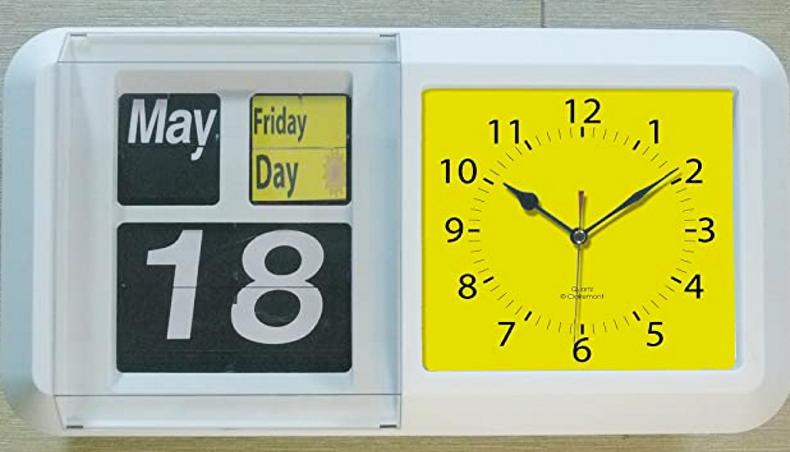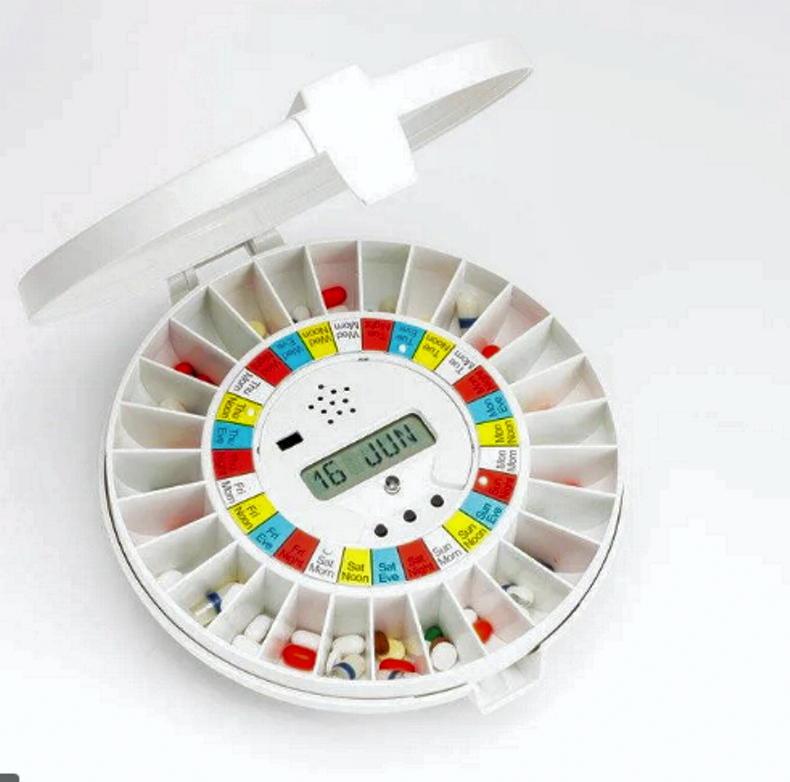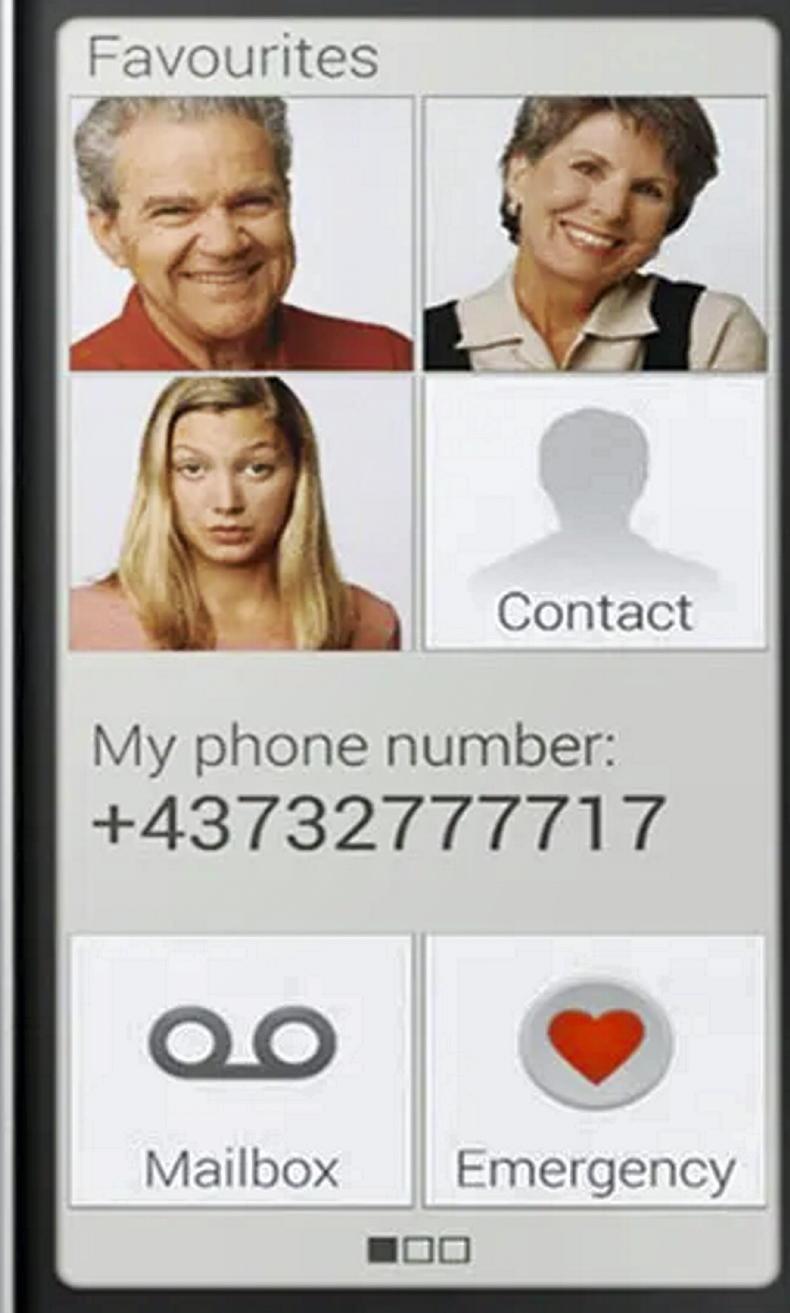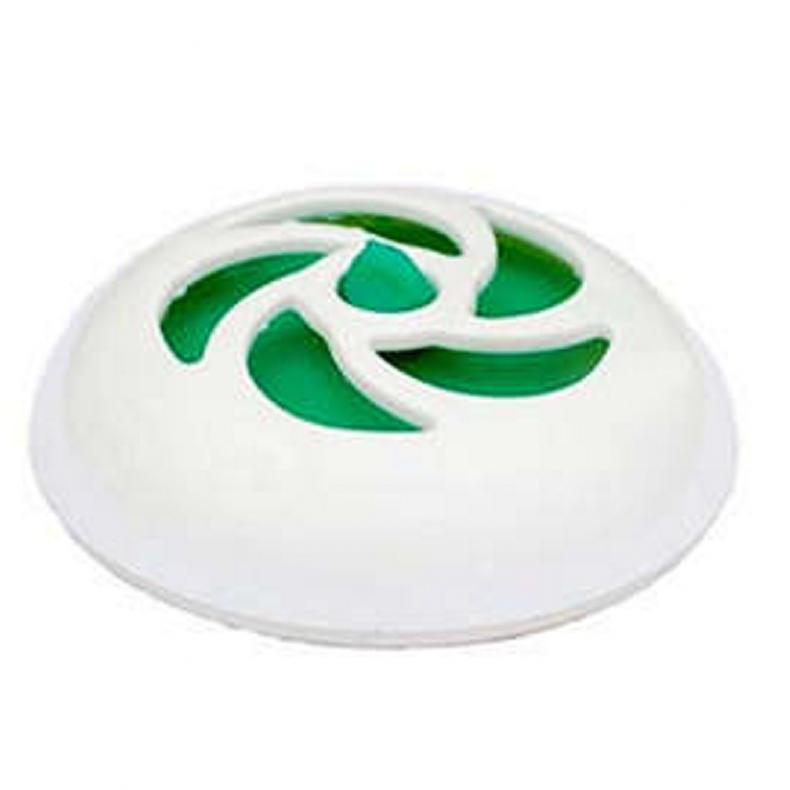Forgetting things more than you used to? Need reminders to take medication? Would you prefer a simpler-to-use phone or remote control? Living on your own and want to be able to contact someone if you fall? Or are you concerned about someone who is at this stage of life and experiencing some challenges?
The good news is that there is lots of help available in the form of assistive technology. It could be a simple product or gadget that will help you remember to do routine tasks or it could be a high-tech monitoring system that will notify a family member if you’ve done things like forgotten to close the front door or if you are unable to get out of bed.
Assistive technology can help with memory and recall, help manage risks at home and support you in continuing to lead an independent life.
Simple solutions
First, let’s look at some of the things you can do to help yourself.
If you find that you need reminders to do things like taking medication or put out the bin on a certain day, taking simple first steps like using lists, keeping a diary, using a notice board or calendar will help you remember what you need to do or where you need to go at specific times.
Checklists for each day are also great for reminding yourself to do tasks and getting into the habit of keeping things in the same place all the time helps to keep things running smoothly, too.
Gadgets
What about gadgets? Here are some examples:
Day, date and time clock

Calendar clock.
There are a variety of clocks with calendars that can help you keep track of time, days and months. Analogue and digital versions are available. One example is the Clairmont calendar flip clock. It has traditional clock hands and changes the day and date automatically. Used with a notice board and a diary, clocks like this can help you with day-to-day tasks and with managing appointments or social plans.
Locator for keys, bag, wallet or phone
Mislaid your keys or phone or purse? You can buy a gadget called Loc8tor that will help you find things as far away as 122m (400ft).
Voice prompter
You can buy a motion sensor (eg the BIME Wander) that will play a pre-recorded message when you pass by eg “Remember your keys” as you approach the door.
Automatic pill dispensers
Need a reminder to take medication? Automatic pill dispensers are available that will sound an alarm up to four times daily to remind you to take your tablets.

Pivotell automative meds dispenser with alarm.
Talking tiles
Do you sometimes forget how to programme a wash? You can get “talking tiles” that you leave beside the washing machine, for example. Press it and you can listen back to a recording you’ve made yourself about what you need to do to complete that task.
Simple items
Simple remote control (eg Doro HandleEasy).One-button radio (simplifies usage).Easy-to-use mobile phone (big buttons). Ease-to-use home phone – There are lots of these available including ones that have buttons big enough to display photos of four frequent contacts. Easy-to-use tablet eg GrandPad (monthly charge, no broadband needed, no spam).
Emporia smart is an easy-to-use phone.
Safety in the home
But what about safety? Most of us are familiar with smoke alarms and house alarms, but if you find that you need extra help in remembering to switch items in the house off you can also get:
Cooker guards – turns the cooker off if it overheats/is left on too long.Countdown timer switches – the timer will turn off an iron or deep fat fryer if left on too long. Can also switch lights on at set times. Magiplug – a special bath plug that releases water if the bath is over filled, preventing flooding. Bath alarm – this will sound if the temperature is above or below a pre-determined range.Motion sensor night light – this will sense your movement and a light will come on allowing you to walk safely. 
Magiplug flood and scald-prevention plug.
Where to get information
Information about where these many and varied items can be purchased is available from www.assistireland.ie. There are also memory resource libraries around the country that you can visit to see and try these products in order to decide what suits your needs. See www.southtipperarydementia.ie (Memory Technology Library pages) for more information.
The Alzheimer Society also has an excellent booklet available entitled Practical Steps To Support Your Independence that is useful for anyone experiencing memory problems, not just those diagnosed with dementia. Also see understandtogether.ie and www.livingwellwithdementia.ie
Tech-assisted care solutions
Telecare or tech-assisted care solutions are a more comprehensive option. These involve a system of supports and alarms that are connected to a monitoring centre or “care hub”.
There are a number of companies providing such services and it’s always a good idea to talk to a few companies before choosing one. Prices generally vary from €8-€20 per day depending on how many sensors you have fitted in your house.
Sensors (not cameras) are fitted to certain items in your home like doors and chairs and these sensors are electronically linked with the monitoring centre 24/7. When the monitoring centre becomes aware of an issue at the user’s house, family members and the emergency services are contacted.
Some telecare assistive technologies can be used without connecting to a monitoring centre. Instead, they can directly alert a family member if an alarm is activated.
Telecare devices
These are some of the devices available:
Automatic falls detector.Carbon monoxide detector.Gas detector.Property exiting sensors. The sensor will alert family/monitoring centre that you have left the house. When out and about
Wearing a piece of technology that can identify where you are can help you to continue going out.
These “location” or “safer walking” devices use GPS to find you. It can be in the form of:
A phone.A pendant.A watch.A belt attachment. Insoles for your shoe. Making decisions about assistive technology
Here is the Alzheimer’s Society’s advice:
Talk about things that you are finding difficult or frustrating you.Decide what you want to continue to do and what is important for you.Highlight things that worry you eg becoming disorientated when out.Ask family and friends for their input.Ask your occupational therapist about assistive technology.Visit memory libraries or memory resource rooms that have assistive technology products on display. You may be able to borrow items in some libraries before committing to buying. Ethical concerns
While assistive technology has many benefits, it does have limitations according to Living Well with Dementia. This organisation, supported by the Genio Trust, has four pilot projects across the country. It is working to identify, mobilise and develop community-based supports that will enable people with dementia to remain at home living full lives.
It points out that assistive technology may not suit everyone.
“Some people may not like hearing recorded messages, some may unplug gadgets or switch them off and assistive technology can never be a replacement for human support and interaction,” a representative says. Here are some of the questions it poses:
How does it affect the privacy or freedom of the person?Is the person involved in the consent process?Is it being considered as an option to cut back on carer hours and therefore “more economical”?Does it disempower the person?Does it only consider the risk and difficulties of the carer rather than the strength of the person with dementia?Halocare
There are several companies in Ireland providing telecare services. These involve sensors being installed in the person’s home, eg at doorways or in chairs or on fridges or medication drawers. Data related to these sensors is transmitted constantly to a tech hub.
The data is analysed on a continuous basis and family or emergency services are notified if there are concerns. Family members can also view the data at any time via an app on their phone and see, for example, that the person is watching television or that they have recently used the microwave or fridge or TV.
John Maughan is chief product officer with one of these companies – Halocare.
They are detecting things like doors opening or people walking into a room but they are not invasive in any way
“We basically figure out whether there is anything we need to be concerned about based on the data that comes in,” he says.
“That would be, for example, doors left open or it might be two people in the house at an unusual time of the night or it may be that somebody is not going to the bathroom, which might indicate that there are dehydration issues.
“Perhaps somebody is not taking their shower or not opening their fridge so we would know that they are not eating.”
Sensors rather than cameras are used.
“They are all passive but blind sensors that use radar technology. They are detecting things like doors opening or people walking into a room but they are not invasive in any way. Some people are squeamish about cameras and we understand that.”
Halocare charges a daily fee that includes sensors, maintenance, upgrades and 24-hour response.
He points out that the company works in conjunction with homecare.
“There are lots of reasons why people need somebody in the house at times, to dress them, to make sure that their meds are organised and so on. We work with individuals and families and act as an additional support in the hours that home carers and family carers cannot be there.
"Carers use a care app and they can check in on the person at any time. If something unexpected happens like a fall or medical emergency, we’re there to help.”
Forgetting things more than you used to? Need reminders to take medication? Would you prefer a simpler-to-use phone or remote control? Living on your own and want to be able to contact someone if you fall? Or are you concerned about someone who is at this stage of life and experiencing some challenges?
The good news is that there is lots of help available in the form of assistive technology. It could be a simple product or gadget that will help you remember to do routine tasks or it could be a high-tech monitoring system that will notify a family member if you’ve done things like forgotten to close the front door or if you are unable to get out of bed.
Assistive technology can help with memory and recall, help manage risks at home and support you in continuing to lead an independent life.
Simple solutions
First, let’s look at some of the things you can do to help yourself.
If you find that you need reminders to do things like taking medication or put out the bin on a certain day, taking simple first steps like using lists, keeping a diary, using a notice board or calendar will help you remember what you need to do or where you need to go at specific times.
Checklists for each day are also great for reminding yourself to do tasks and getting into the habit of keeping things in the same place all the time helps to keep things running smoothly, too.
Gadgets
What about gadgets? Here are some examples:
Day, date and time clock

Calendar clock.
There are a variety of clocks with calendars that can help you keep track of time, days and months. Analogue and digital versions are available. One example is the Clairmont calendar flip clock. It has traditional clock hands and changes the day and date automatically. Used with a notice board and a diary, clocks like this can help you with day-to-day tasks and with managing appointments or social plans.
Locator for keys, bag, wallet or phone
Mislaid your keys or phone or purse? You can buy a gadget called Loc8tor that will help you find things as far away as 122m (400ft).
Voice prompter
You can buy a motion sensor (eg the BIME Wander) that will play a pre-recorded message when you pass by eg “Remember your keys” as you approach the door.
Automatic pill dispensers
Need a reminder to take medication? Automatic pill dispensers are available that will sound an alarm up to four times daily to remind you to take your tablets.

Pivotell automative meds dispenser with alarm.
Talking tiles
Do you sometimes forget how to programme a wash? You can get “talking tiles” that you leave beside the washing machine, for example. Press it and you can listen back to a recording you’ve made yourself about what you need to do to complete that task.
Simple items
Simple remote control (eg Doro HandleEasy).One-button radio (simplifies usage).Easy-to-use mobile phone (big buttons). Ease-to-use home phone – There are lots of these available including ones that have buttons big enough to display photos of four frequent contacts. Easy-to-use tablet eg GrandPad (monthly charge, no broadband needed, no spam).
Emporia smart is an easy-to-use phone.
Safety in the home
But what about safety? Most of us are familiar with smoke alarms and house alarms, but if you find that you need extra help in remembering to switch items in the house off you can also get:
Cooker guards – turns the cooker off if it overheats/is left on too long.Countdown timer switches – the timer will turn off an iron or deep fat fryer if left on too long. Can also switch lights on at set times. Magiplug – a special bath plug that releases water if the bath is over filled, preventing flooding. Bath alarm – this will sound if the temperature is above or below a pre-determined range.Motion sensor night light – this will sense your movement and a light will come on allowing you to walk safely. 
Magiplug flood and scald-prevention plug.
Where to get information
Information about where these many and varied items can be purchased is available from www.assistireland.ie. There are also memory resource libraries around the country that you can visit to see and try these products in order to decide what suits your needs. See www.southtipperarydementia.ie (Memory Technology Library pages) for more information.
The Alzheimer Society also has an excellent booklet available entitled Practical Steps To Support Your Independence that is useful for anyone experiencing memory problems, not just those diagnosed with dementia. Also see understandtogether.ie and www.livingwellwithdementia.ie
Tech-assisted care solutions
Telecare or tech-assisted care solutions are a more comprehensive option. These involve a system of supports and alarms that are connected to a monitoring centre or “care hub”.
There are a number of companies providing such services and it’s always a good idea to talk to a few companies before choosing one. Prices generally vary from €8-€20 per day depending on how many sensors you have fitted in your house.
Sensors (not cameras) are fitted to certain items in your home like doors and chairs and these sensors are electronically linked with the monitoring centre 24/7. When the monitoring centre becomes aware of an issue at the user’s house, family members and the emergency services are contacted.
Some telecare assistive technologies can be used without connecting to a monitoring centre. Instead, they can directly alert a family member if an alarm is activated.
Telecare devices
These are some of the devices available:
Automatic falls detector.Carbon monoxide detector.Gas detector.Property exiting sensors. The sensor will alert family/monitoring centre that you have left the house. When out and about
Wearing a piece of technology that can identify where you are can help you to continue going out.
These “location” or “safer walking” devices use GPS to find you. It can be in the form of:
A phone.A pendant.A watch.A belt attachment. Insoles for your shoe. Making decisions about assistive technology
Here is the Alzheimer’s Society’s advice:
Talk about things that you are finding difficult or frustrating you.Decide what you want to continue to do and what is important for you.Highlight things that worry you eg becoming disorientated when out.Ask family and friends for their input.Ask your occupational therapist about assistive technology.Visit memory libraries or memory resource rooms that have assistive technology products on display. You may be able to borrow items in some libraries before committing to buying. Ethical concerns
While assistive technology has many benefits, it does have limitations according to Living Well with Dementia. This organisation, supported by the Genio Trust, has four pilot projects across the country. It is working to identify, mobilise and develop community-based supports that will enable people with dementia to remain at home living full lives.
It points out that assistive technology may not suit everyone.
“Some people may not like hearing recorded messages, some may unplug gadgets or switch them off and assistive technology can never be a replacement for human support and interaction,” a representative says. Here are some of the questions it poses:
How does it affect the privacy or freedom of the person?Is the person involved in the consent process?Is it being considered as an option to cut back on carer hours and therefore “more economical”?Does it disempower the person?Does it only consider the risk and difficulties of the carer rather than the strength of the person with dementia?Halocare
There are several companies in Ireland providing telecare services. These involve sensors being installed in the person’s home, eg at doorways or in chairs or on fridges or medication drawers. Data related to these sensors is transmitted constantly to a tech hub.
The data is analysed on a continuous basis and family or emergency services are notified if there are concerns. Family members can also view the data at any time via an app on their phone and see, for example, that the person is watching television or that they have recently used the microwave or fridge or TV.
John Maughan is chief product officer with one of these companies – Halocare.
They are detecting things like doors opening or people walking into a room but they are not invasive in any way
“We basically figure out whether there is anything we need to be concerned about based on the data that comes in,” he says.
“That would be, for example, doors left open or it might be two people in the house at an unusual time of the night or it may be that somebody is not going to the bathroom, which might indicate that there are dehydration issues.
“Perhaps somebody is not taking their shower or not opening their fridge so we would know that they are not eating.”
Sensors rather than cameras are used.
“They are all passive but blind sensors that use radar technology. They are detecting things like doors opening or people walking into a room but they are not invasive in any way. Some people are squeamish about cameras and we understand that.”
Halocare charges a daily fee that includes sensors, maintenance, upgrades and 24-hour response.
He points out that the company works in conjunction with homecare.
“There are lots of reasons why people need somebody in the house at times, to dress them, to make sure that their meds are organised and so on. We work with individuals and families and act as an additional support in the hours that home carers and family carers cannot be there.
"Carers use a care app and they can check in on the person at any time. If something unexpected happens like a fall or medical emergency, we’re there to help.”










 This is a subscriber-only article
This is a subscriber-only article










SHARING OPTIONS: